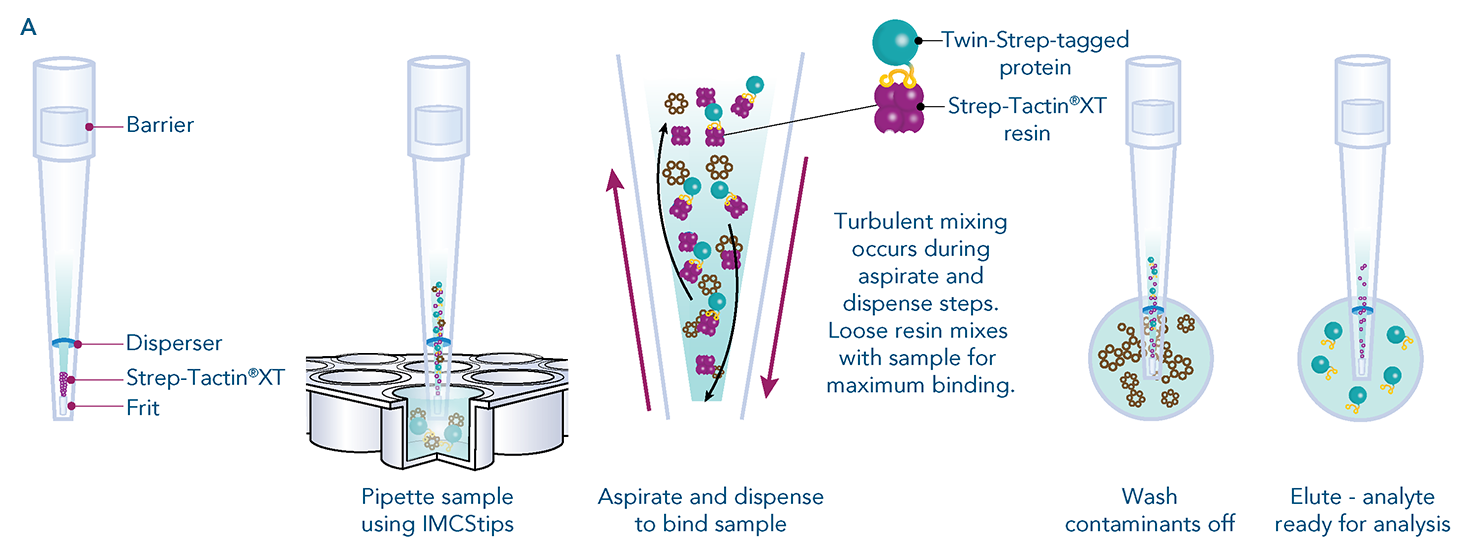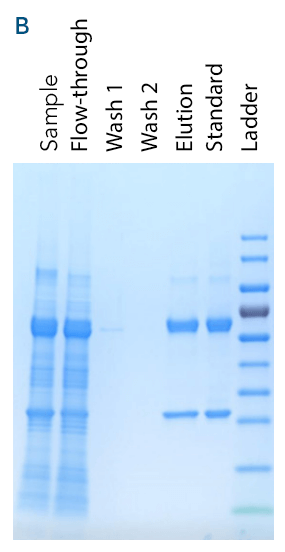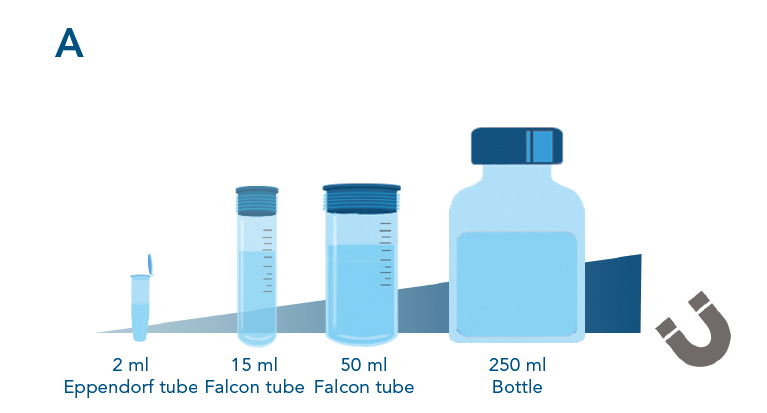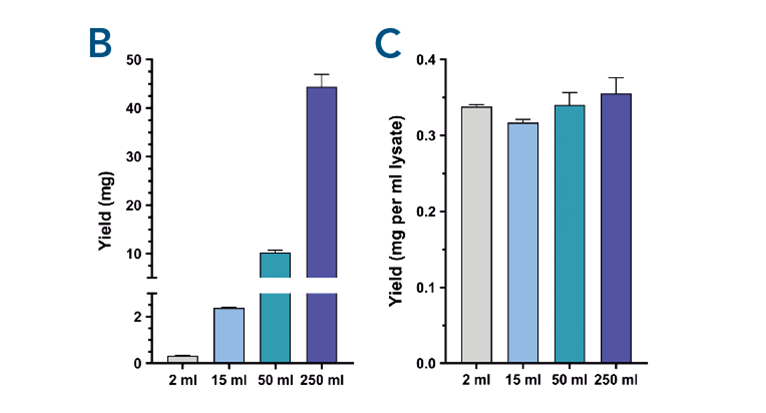Scale-up Protein Purification
The scalability of protein purification is crucial for researchers involved in process development. While only a few micrograms of protein are needed during the screening phase, several milligrams or even grams may be required in later phases. But which type of resin (e.g., agarose resin or magnetic beads) or which format (e.g., spin columns, FPLC columns, etc.) is suitable for each scale? The following sections explain the recommended types and formats for different scales of protein purification.
Protein purification columns, such as spin columns, gravity flow columns and FPLC columns, from IBA Lifesciences, are pre-packed with agarose resin and have a defined resin bed volume of up to 10 ml. As a result, they provide a limited yield and are recommended primarly for screening and laboratory-scale applications.
Both magnetic beads and agarose resin can be used for protein purification, from the screening phase to laboratory-scale protein production. For large-scale protein production, agarose resin is recommended. Both options are available as suspensions in various filling sizes, allowing the resin bed volume to be individually selected and easily adapted to specific purification conditions.
The following sections describe the optimal use of these formats for protein purification, ranging from screening to large-scale production.
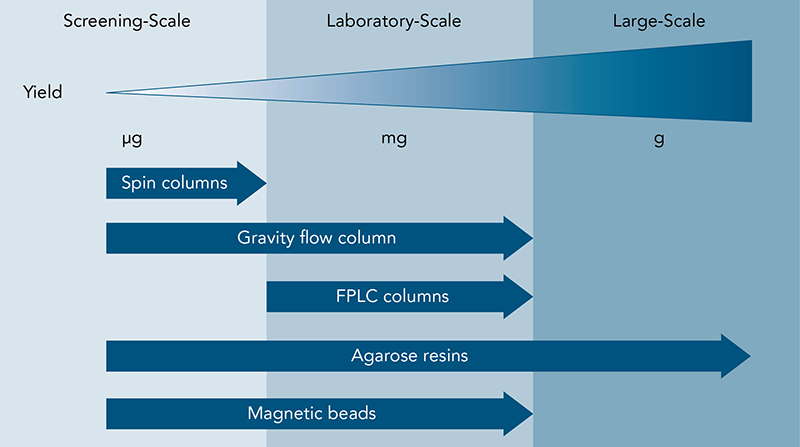
Recommended application range of IBA Lifesciences protein purification products depending on the protein purification scale.

